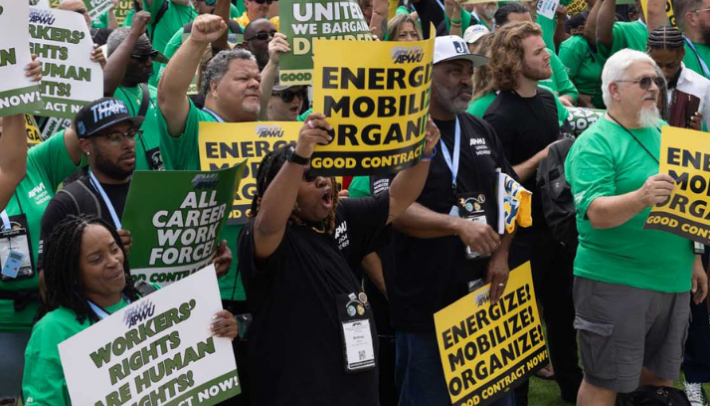collapse >>
Search for Articles
APWU Launches National Ad; Warns of Price Hikes, Post Office Closures in Anti-Privatization Campaign
July 21, 2025
This week the American Postal workers Union (APWU) launched a national advertising campaign on to alert the public about proposed plans to privatize the public Postal Service. The ad called “Memo” highlights a document sent by Wells Fargo Equity...

APWU Arbitration Award Secures Grievance Rights for Separated Non-Probationary Employees
July 17, 2025
The APWU has secured a major victory for the rights of non-probationary employees who are discharged without just cause from the Postal Service to file grievances on those discharges and have them heard in arbitration, Industrial Relations Director...
e-Team Report, March 15, 2013
March 13, 2013
Update on Postal Service Protection Act
Postal Service Stabilization Act Gains Supporters
Rep. Lynch Introduces Postal Stabilization Act
March 11, 2013
Rep. Stephen Lynch (D-MA) introduced the Postal Service Stabilization Act (H.R. 961) on March 5, a measure that would enhance the financial viability of the USPS. The bill would require the Office of Personnel Management (OPM) to recalculate the...

Union Urges Lawmakers To Support Postal Service Protection Act
March 11, 2013
Local officers who attended the recent APWU National Presidents Conference in Washington, DC made the rounds on Capitol Hill March 4 to build support for the Postal Service Protection Act (S. 316/H.R. 630).
OSHA Cites Maine, Michigan Facilities For Unsafe Working Conditions
March 8, 2013
The Occupational Safety and Health Administration (OSHA) issued a citation to the Postal Service for unsafe working conditions at its Scarborough ME facility and fined the agency $27,500 on Feb. 1.

Landmark Arbitration Award Reshapes California PVS Subcontracting
March 7, 2013
In one of the first decisions interpreting the 2010-2015 Collective Bargaining Agreement, Arbitrator Stephen B. Goldberg ruled on March 4 that the USPS decision to subcontract Postal Vehicle Service work throughout California violated the contract.



